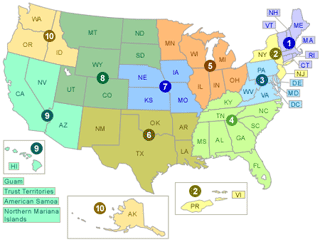SRS Crisafulli Guest Author David Zamida on Gold Mining (part 3 of 3)
Article submitted by David Zamida, Mineral Project Manager and Mining Property Broker for BCgold.com
2 min read
Elizabeth Kaiser : Wed, Sep 28, 2011 @ 09:09 AM

Article submitted by David Zamida, Mineral Project Manager and Mining Property Broker for BCgold.com
Impacts of gold mining and mineral processing on communities and the environment
Mining operations today have a wide range of economic, environmental and cultural impacts on society. Such impacts may be either positive or negative.
On the one hand, mining can provide an economic boon to the local community. A new mining venture may create jobs, improve local infrastructure, enhance quality of living and even increase property values for nearby population centers. Along with job creation, there are also skills-enhancement programs which improve the education, ability and value of mine personnel within the community.
 Near a Gold Mine in a Rural African Community
Near a Gold Mine in a Rural African Community
On the other hand, mining communities can be strongly affected by commodity price declines. Moreover, when mines and mills shut down, the entire community can be devastated. In such cases, the mine operator is often blamed despite their inability to affect market conditions. For this reason, responsible operators will plan ahead for mine closures. One approach is to earmark funds for community enhancement programs, such as cross-training programs which upgrade mine personnel skill sets for compatibility with potential post-closure industries.
Mining can have various impacts on the environment. No two mines or mineral deposits are exactly the same – each one has its own inherent risks. While initial emphasis must focus on the economic extraction of valuable minerals, an important key to sustainable operations is effective management of high volumes of waste and byproduct. Using a gold mine as an example, economic grades of ore may have gold concentrations as low as 1 part per million, therefore the principal task of mining can be 99% waste management.
The earth is constantly shifting. This shifting can cause the destruction of habitat, species and communities due to soil erosion, breached tailings dams, ruptured geo-containment structures and other storage failures. Long-term waste storage structures must be effectively designed by qualified operators to withstand this shifting.
Another concern for communities is the potential loss of culturally significant land. In most developed countries, mechanisms exist for archeological review of potentially affected sites prior to setting a reclamation bond and issuing permits. In many jurisdictions where indigenous cultures exist these groups are given the opportunity to participate in the archaeological evaluation process themselves, to identify and safeguard culturally significant areas.
About the author
 Dave Zamida is a Mineral Project Manager and Mining Property Broker for BCgold.com, which launched its first website in 2004, aligning unique mining property assets with market demand.
Dave Zamida is a Mineral Project Manager and Mining Property Broker for BCgold.com, which launched its first website in 2004, aligning unique mining property assets with market demand.
David’s clients include major, junior, public, private and government agencies. David has earned several accreditations through The University of British Columbia’s NBK Department of Mining Engineering, the British Columbia Institute of Technology and other institutions and is a member of the PDAC and CIM.
Be sure not to miss Part 2 of this article, Waste processing and storage - subscribe to this RSS feed (above this article).
Would you like to learn more about SRS Crisafulli's involvements in the Gold Mining Industry? Contact Maureen Lundman.
Subscribe to this RSS feed and don't miss Ms. Lundman's blog article about gold pond reclamation dredging - coming soon.

Article submitted by David Zamida, Mineral Project Manager and Mining Property Broker for BCgold.com

Article submitted by David Zamida, Mineral Project Manager and Mining Property Broker for BCgold.com
 Read More
Read More